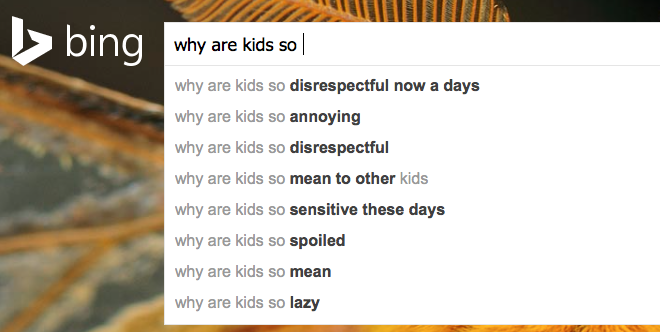Prophets had a tough job. They warned (which is different than threaten) their own family that their continued foolishness, continued mimicry of other nations, would come to a bad end. Borne out of love, prophets used imagery and rhetoric to make their point: I know the other nations have better weapons and technology and more impressive reports from their census bureaus, but we are not to live like them. We are the people of light. They're supposed to be mimicking us! Turn back, or we're going to ruin ourselves!
In Jeremiah 4, war and destruction are coming. Israel’s enemies are drawing near, their trumpets and shouts echoing in the distance. Israel's enemies are going to treat them the way they treat all the other nations, since Israel is behaving like them. The prophet pulls few punches: “You guys are acting like stupid children. The whole land will be laid waste. It will become unrecognizable and devoid of its former beauty. We have to turn back to who we are. To who God is.”
In Isaiah 34 rebellion of God’s chosen people is threatening to get everything destroyed. The imagery is vivd: God’s people will be besieged and torched to the ground by neighboring peoples. Only scavengers and birds will be found in what is destined to become a place of chaos, waste and emptiness.
Job, Isaiah, Psalms talk about beloved places ruined for rejection of God's way. Gutted of their former glory. Waste, wilderness and chaos where something whole and good had been.
Genesis 1:2 reads, "The earth was without form and void, and darkness was over the face of the deep. And the Spirit of God was hovering over the face of the waters. "
As the story goes, Elohim makes all things from no things. Yet the second verse in Genesis paints an interesting picture for us as we try and imagine the beginning. “Without form and void” is the poetic Hebrew phrase tohu wa bohu. These are the very same words used by the prophets to describe something ruined and reduced to broken chaos and waste. Devoid. Emptied. Unrecognizable. The connotation does less for the idea that there was nothing in the beginning, and more for the idea there was something that got messed up.
Some insert all sort of ideas here. Interesting ideas. Speculations. Argument fodder. Perhaps you’ve heard, for instance, of the Gap Theory. This isn’t the theory of well-folded jeans. I’m not even saying that was a funny joke. Gap Theory is in essence the idea that the perceived gap between verse one and two can be found the mysterious allusion to a former creation that got tanked, and then, some time later, got remade.
I am not selling this as the case.
I’m simply interested in the idea that in the beginning, God was not just making things from nothing (which our tradition holds, on faith) but can be read as taking circumstances usually understood as being the result of former, regrettable behavior - tohu wa bohu - and turning it into something good. There in the second verse of the Bible is the Spirit of Elohim, hovering like a mother bird on her nest, eagerly anticipating rebirth where others would say there was no hope at all.
Jesus’ stepdad was Joseph. And Joseph was a tekton, typically translated carpenter, or better, craftsman. Joseph* apparently taught Jesus** the trade, as Jesus was known as a tekton himself. And what do carpenters/craftsmen do besides make guys like me feel useless at a worksite? They take available materials and create things from them. Beautiful, meaningful, essential things others eagerly adopt as part of their life.
Piles of dead trees. Buckets of tacky mud. Mounds of broken stone. Formless and chaotic. “Nothing” to the unskilled eye and in unskilled hands. And then, where there was nothing, there is suddenly something.
When we live at odds with love and humility and generosity, we bring ruin to ourselves and our world.
But when we entrust ourselves to God, living in God's ways . . . we still find we’ve brought some degree of ruin to ourselves and our world.
There’s no way to avoid it. Created things have a tendency to unmake themselves. There is no experience where we humans aren’t in varying measure complicit in tohu wa bohu. You and I will always break stuff. Ourselves. Others. Even our attempts at fixing tend to result in formless void. But the story of creation is at the same time a story of re-creation. Of messes being remade. Individuals and families and churches and nations understanding they've varied from their proper course and have wreaked havoc on their part of the world, and yet believing that that's not at all the end of the tale. Much the opposite. It's a beginning. From the very inception of reality, all that is not God has needed the redemptive creativity of God.
May we make the material of our tohu wa bohu realities available to the Craftsman and find ourselves being remade.
* Whose name means “He will increase it”
** Whose name means “The Master Salvages”





